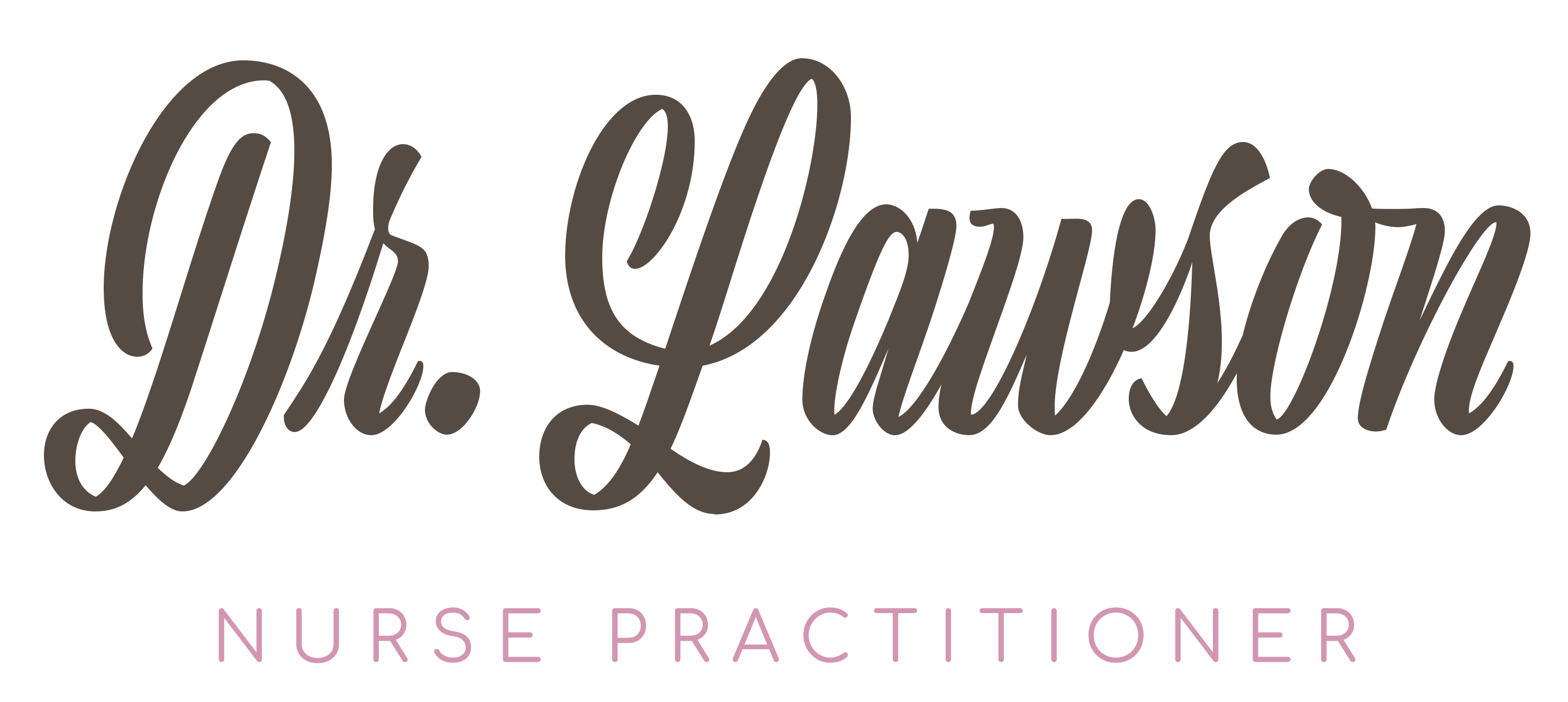Independence At Home Act (S. 1131/HR. 2560)
I just sent the following letter to Senator Kerry’s office:
June 11, 2009
Honorable John F. Kerry
U.S. Senate
Russell Senate Office Building -304
Washington, D.C. 20510
Re: Independence at Home Act (S. 1131/H.R. 2560)
Dear Senator Kerry:
I am writing to you to request your support for the Independence at Home Act (S. 1131/H/R/ 2560), an important piece of legislation that, if enacted, would make a real difference to the lives of my patients in New Orleans.
As you know, I had to evacuate New Orleans as a result of Hurricane Katrina, but because my patient’s records were stored on my PDA, I was able to quickly return and rebuild my practice. Demand for my services has been great and today, I see more than 500 patients who are too frail and too ill to travel to the city’s health clinics. I am still the only Nurse Practitioner owned house call practice in New Orleans.
The Independence at Home Act could change that by creating pilot programs to better serve the needs of Medicare’s highest cost beneficiaries — the very patients I am serving, with interdisciplinary care teams. What is unique about IAH is that it is funded entirely from the savings it creates. Further, it is modeled upon proven health care delivery models such as the Veteran’s Administration’s Home Based Primary Care Program (VAHBCP). The VAHBCP has been in existence for 32 years. Today, it operates in 130 locations in 48 states and treats 17,000 highest cost, chronically ill patients. It will soon be available at every VA facility. Notably, the VA HBPC has:
- Reduced hospital days by 62%;
- Reduced nursing home days by 88%; and
- Reduced overall costs by 24%
The VA’s HBPC program has been replicated successfully throughout the country with similar results, but these programs are small and are not widely available.
As a member of the Senate Finance Committee, you are in a position to make a difference in the lives of homebound seniors in New Orleans and across the country. Please consider co-sponsoring this legislation and working to include it in health care reform.
Sincerely,
Dr. Scharmaine Lawson-Baker, DNP, FNP-BC
HE IS NOW A COSPONSER!!!!
READ Information on IAH Below:
Independence at Home Act (S. 1131/HR. 2560)
Q. What does the Independence at Home Act (IHA) establish?
A. The IHA establishes a voluntary chronic care coordination demonstration project in 26 States using a patient-centered health care delivery model to ensure that Medicare beneficiaries with multiple chronic conditions can remain independent for as long as possible.
Q. Who provides services to Medicare beneficiaries under the IHA?
A. The Independence at Home Care Team provides services to the participant as part of an Independence at Home program. This is a team of qualified individuals that includes an Independence at Home physician or an Independence at Home nurse practitioner and an Independence at Home coordinator.
Q. Who is eligible to enroll in an IHA program?
A. The IHA program targets high- cost, high-risk Medicare beneficiaries. An eligible beneficiary must meet all of the following criteria:
(1) Have a qualifying functional impairment,
(2) Have been diagnosed with two or more chronic conditions including CHF, diabetes, COPD, IHD, peripheral arterial disease, stroke, Alzheimer’s disease or other dementias designated by the Secretary, pressure ulcers, hypertension, high cost neurodegenerative diseases designated by the Secretary and any other chronic condition identified by the Secretary that is likely to result in high costs to the Medicare program when such condition is present in combination with one or more of the chronic conditions listed above, and
(3) Within 12 months of first enrolling, have received non-elective inpatient hospital services, services in the emergency department of a hospital and any of the following: extended care services, services in an acute rehabilitation facility or home heath services.
Q. What is a qualifying functional impairment?
A. A qualifying functional impairment means the inability to perform, without the assistance of another person, two or more activities of daily living.
Q. Are any Medicare beneficiaries ineligible for IHA services?
A. Yes. The following Medicare beneficiaries are ineligible:
(1) Beneficiaries being treated for end-stage renal disease,
(2) Beneficiaries enrolled in a PACE program or a chronic care improvement program,
(3) Beneficiaries, who within the previous year have been a resident for more than 90 days in an SNF, NF or other facility as defined by the Secretary or whose enrollment in an IHA program would not be appropriate.
Q. Who can qualify as an IHA organization?
A. An IHA organization can be a provider of services, a physician or physician group practice, a nurse practitioner or nurse practitioner group practice, or other legal entity that receives payment for services under Medicare. An IHA organization must enter into an agreement with the Secretary to provide IHA services, and must provide 24/7 coverage for emergencies, among other requirements.
Q. What services must be provided?
A. Each beneficiary must receive an IHA assessment and an IHA Home Plan.
Q. What are the required elements of the IHA assessment?
A. Each must include an assessment of:
(1) Activities of Daily Living
(2) Medications and medication adherence
(3) Affect, cognition, executive function and presence of mental disorders
(4) Functional status, including mobility, balance, gait, risk of falling and sensory function.
(5) Social functioning and social integration
(6) Environmental needs and a safety assessment
(7) The ability of the primary caregiver to assist with the beneficiary’s care as well as the caregiver’s own physical and emotional capacity, education and training.
(8) Whether the beneficiary is likely to benefit from an Independence at Home program
(9) Whether conditions in the beneficiary’s home or place of residence would permit the safe provision of services in the home or residence, respectively, and
(10) Other factors determined appropriate by the Secretary.
Q. What are the required elements of the IHA Home Plan?
A. Every IHA organization must have the capacity to provide directly, or through a qualified entity, all of the following elements of an IHA Home Plan to the extent appropriate and accepted by the participant:
(1) Self-care education and preventive care consistent with the participant’s condition.
(2) Coordination of all medical treatment furnished to the participant, regardless of whether such treatment is covered and available to the participant under Medicare.
(3) Information about and access to, hospice care.
(4) Pain and palliative care and end-of-life care.
(5) Education for primary caregivers and family members.
(6) Caregiver counseling services and information about and referral to, other caregiver support and health care services in the community.
(7) Monitoring and management of medications by a pharmacist who is board certified in geriatric pharmacy by the Commission for Certification in Geriatric Pharmacy or possesses other comparable board certification demonstrating knowledge and expertise in geriatric pharmacotherapy, as well as assistance to participants and their caregivers with respect to selection of a prescription drug plan under Part D that best meets the needs of the participant’s chronic conditions.
Q. How are the IHA pilot programs funded?
A. Each program is funded by Medicare, but must demonstrate aggregate cost savings to the Medicare program for participating beneficiaries that is not less than the product of 5% of the estimated average monthly costs that would have been incurred under part A, B and D if those beneficiaries had not participated in the IHA program and the number of participant-months for that year.
For more information, contact Claudia Schlosberg, J.D. at 703-739-1316, ext 128, or email govaff@ascp.com
INDEPENDENCE AT HOME ACT
A Chronic Care Coordination Program for Medicare
That Has Proven Effective in
Reducing Costs and Improving Quality
For Highest Cost Patients
May 26, 2009
What is the Independence at Home Act?
A bipartisan bill (S. 1131 and H.R. 2560) that:
- Provides a chronic care coordination benefit across all treatment settings targeting the highest cost Medicare beneficiaries with multiple chronic illnesses who receive poor quality, fragmented health care;
- Is funded entirely from the savings it achieves;
- Reduces Medicare expenditures by at least 5% starting with the highest cost beneficiaries in the highest cost states;
- Provides an incentive for additional savings for investment in health IT and other technologies that generate future savings;
- Allows chronically ill beneficiaries to receive primary care at home and avoid unnecessary hospitalizations, ER visits and nursing home admissions;
- Provides support for family caregivers, particularly those who have special needs dealing with patients with Alzheimer’s Disease and dementia;
- Preserves beneficiary choice—beneficiaries retain all existing Medicare benefits and may enroll or disenroll in an IAH program at their discretion;
- Allows providers and practitiones voluntarily to form IAH organizations which are held strictly accountable for minimum results and may share in additional savings once the results are achieved; and
- Provides revenue for reinvestment in primary care and expands career opportunities for primary care physicians and others.
1. Why is the Independence at Home Act needed?
- 20% of Medicare beneficiaries with multiple chronic illnesses account for 2/3’s of Medicare spending.[i] Beneficiaries with 2 or more chronic diseases are likely to be persistently high cost.[ii]
- Medicare beneficiaries with multiple chronic illnesses see an average of 13 different physicians; fill 50 different prescriptions a year; account for 76% of all hospital admissions, account for 88% of all prescriptions filled; account for 72% of physician visits; and are 100 times more likely to have a preventable hospitalization than someone with no chronic conditions.[iii]
- Two thirds of physicians treating patients with multiple chronic conditions believe that their training did not adequately prepare them to coordinate in-home and community health services and manage chronic pain.[iv]
2. What are the key elements of the Independence at Home Act?
- An Independence at Home organization, comprised of Medicare providers and practitioners, enters into an IAH agreement with HHS to reduce costs by at least 5%, improve outcomes, and provide patient/caregiver satisfaction for high cost Medicare beneficiaries in return for a share of the savings beyond 5%.
- An Independence at Home Care team of health care professionals directed by physicians or nurse practitioners with training in the care of complex chronically ill patients coordinates all of an eligible beneficiary’s health care across all treatment settings and provides patient-centered care coordination services in the patient’s home.
- IAH eligible beneficiaries are those who are suffering from two or more of 10 specified high cost chronic diseases, have utilized certain high cost Medicare benefits in the past 12 months and have an inability to perform two or more of 5 activities of daily living.[v]
- Each IAH organization must meet the following three performance standards annually as a condition of maintaining IAH agreements:
a) Minimum savings of 5% per year;
b) Outcomes appropriate for the beneficiary’s condition; and
c) Patient/caregiver satisfaction.
- IAH organizations may receive payments during the year for coordinating care but must refund those payments if they fail to achieve 5% savings.
- IAH organizations split savings beyond 5% with Medicare on an 80%/20% basis.
- The IAH program provides freedom of choice—beneficiaries do not relinquish any existing Medicare benefit, and they may enroll in, withdraw from, or change IAH programs at their discretion.
3. Is the Independence at Home program based on any existing models?
The Independence at Home program is based on the physician/nurse practitioner house call model which has been operating for decades at numerous locations across the country. The following are some examples:
The Veterans’ Administration’s Home-Based Primary Care program has been in operation for 32 years, currently exists in 130 locations in 48 states, treats 17,000 chronically ill patients and soon will be available at every VA facility. The HBPC program has
A) reduced hospital days by 62%;
B) reduced nursing home days by 88%; and
C) reduced overall costs by 24%.
The Urban Medical Housecall program in Boston, MA has been operating for more than 30 years, currently is treating nearly 600 Medicare high cost beneficiaries with multiple chronic diseases and has reduced hospital admissions for these patients by 29% and hospital days by 34%.
The Virginia Commonwealth Medical Center house calls program in Richmond, VA has been operating for 23 years and has reduced hospital costs by 60% for high costs beneficiaries with multiple chronic diseases.
The Call Doctor Medical Group has operated a physician house call practice for 25 years in San Diego, CA focused on Medicare beneficiaries with multiple chronic diseases and has reduced ER visits by 59% and generated per capita savings of $1,075.
The Home Physicians program in Chicago, IL has been operating for 15 years and currently treats 7,000 high cost Medicare beneficiaries with multiple chronic illnesses. That program has shown a reduction in ER visits and hospitalizations from 35% to as high as 60% over the years.
The House Call program at Montefiore Health System in the Bronx, NY has been operating for 5 years treating high cost elders with multiple chronic diseases, currently has an enrollment of 400 patients and has shown a 42% reduction in hospitalizations and a 33% reduction in total costs.
The Mount Sinai Visiting Doctors program in New York City, NY has been operating for 14 years treating elders with multiple chronic diseases, has an annual census of 1,100 beneficiaries and has reduced hospitalizations for those patients by 66%.
The House Call program at the Washington Hospital Center, in Washington, D.C. has been operating for 10 years, has an active census of 600 patients with 3 or more chronic diseases and has produced a 25% reduction in hospital length of stay and a 75% reduction in hospitalizations at the end of life.
Geriatric Care of Nevada (now Geriatric Specialty Care) house call program in North Central Nevada has operated for 8 years with a patient census of 850 patients with multiple chronic diseases and has reduced hospitalizations by 27% and per patient total costs by $750.
The GRACE house calls program in Indianapolis, IN has operated for more than 5 years and has reduced ER visits by 50% and hospitalization rates by 43% for this high cost beneficiary population.
4. Are IAH-style programs accepted by patients and family caregivers?
The VA’s Home Based Primary Care program has received a patient satisfaction rating of 82.7% which is the highest satisfaction rating ever received by a VA health care program.
The Mount Sinai Visiting Doctors program has found that 100% of the patients/caregivers believe the program improved their quality of life, 92% reported the quality of care as “outstanding” or “very good” and 88% reported that the program “definitely meets their needs.
HomeCare Physicians, an IAH-style program in Wheaton, Ill. conducted a survey of its patients in 2008 in which 78% of patients felt that the house calls program has reduced their visits to the ER, 81% felt that the program had helped them avoid hospitalizations, and 72% felt that the program had helped them avoid being placed in a nursing home.
Urban Medical, Virginia Commonwealth Medical Center and others report that they have waiting lists of patients with multiple chronic diseases who wish to enroll in their programs.
5. Is the IAH Act like any other health care reform proposal?
The Independence at Home Act is compatible with the Accountable Care Organization and Medical Home proposals, but it is the only Medicare health reform proposal that:
A) Focuses on the highest cost segment of the Medicare beneficiary population;
B) Is completely self-funded by the savings it achieves;
C) Requires each program to achieve a minimum savings of 5% annually; and
D) Provides patient-centered care coordination in the home using the proven house calls service delivery model.
6. What organizations have endorsed the Independence at Home Act?
AARP;
The Alzheimer’s Foundation of America;
The Alzheimer’s Association;
The American Academy of Home Care Physicians;
The American Academy of Neurology;
The American Academy of Nurse Practitioners;
The American College of Nurse Practitioners;
The American Academy of Physicians Assistants;
The American Society of Consultant Pharmacists;
The Massachusetts Neurologic Association;
The National Family Caregivers Association;
The Family Caregiver Alliance/National Center on Caregiving;
The American Association of Homes and Services for the Aging;
The Maryland-National Capital Home Care Association;
The Visiting Nurse Associations of America;
Housecalls Doctors of Texas;
Intel Corp.;
The National Council on Aging;
U.S. PIRG;
Urban Medical House Calls (Boston, MA);
MD2U Doctors Who Make Housecalls (Louisville, KY); and
Wyeth
7. Who can I contact who could give me information about successful IAH-style programs?
The following individuals would be glad to answer questions about IAH-style programs:
Dr. Tom Edes, Department of Veterans Affairs,
(202) 461-6785, thomas.edes@va.gov.
Dr. George Taler, MedStar Health, Wash., D.C.
(202) 360-7203, George.Taler@Medstar.net.
Dr. Peter Boling, Medical College of Virginia,
(804) 828-5323, pboling@mcvh-vcu.edu.
Dr. Gresham Bayne, JanusHealth, San Diego, CA
(619) 851-1300, gbayne@janushealth.com.
Connie Row, Executive Director, American Academy of Home Care Physicians,
(410) 676-7966, AAHCP@comcast.net.
For more information, contact:
Jim Pyles
Powers, Pyles, Sutter & Verville, P.C.
1501 M Street
Washington, D. C. 20005
(202) 466-6550
jim.pyles@ppsv.com
[i] 69 Fed. Reg. at 22,066 (April 23, 2004); “Chronic Conditions: Making the Case for Ongoing Care”, p. 16, G. Anderson, Johns Hopkins University (Dec. 2002).
[ii] “High-Cost Medicare Beneficiaries”, p. 14, Congressional Budget Office (May 2005).
[iii] Testimony of Gerard F. Anderson, Ph.D., Johns Hopkins Bloomberg School of Public Health, Health Policy and Management, before the Senate Special Committee on Aging, “The Future of Medicare: Recognizing the Need for Chronic Care Coordination, Serial No. 110-7, pp. 19-20 (May 9, 2007).
[iv] “Chronic Conditions: Making the Case for Ongoing Care,” p. 35.
[v] The 10 chronic diseases are congestive heart failure, diabetes, chronic obstructive pulmonary disease (COPD), ischemic heart disease, peripheral arterial disease, stroke, Alzheimer’s Disease and other dementias designated by the Secretary, pressure ulcers, hypertension, and neurodegenerative diseases designated by the Secretary which result in high costs including amyotrophic lateral sclerosis (ALS), multiple sclerosis, and Parkinson’s disease. The Medicare benefits are non-elective inpatient hospital services, emergency room services, and extended care services, acute rehabilitation services and home health services. The activities of daily living are bathing, dressing, grooming, transferring, feeding, or toileting.



